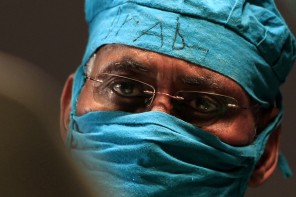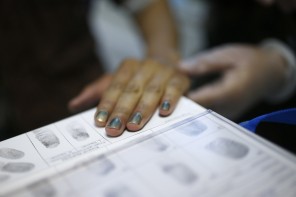Rwanda is accused of obstructing trade in electro-wielded black tubes from Uganda. No word on what those are. Police intercept a car carrying 2.3 million Rwandan francs (nearly $4000) worth of Hotel Waragi. That one’s easier: it’s an illegal and “lethal” Ugandan home brew, classified by Rwanda as an illicit drug.
After tapping methane in Lake Kivu, the country gets into the biodiesel game, urging residents to cede arable land to the jatropha tree . “Every family should grow at least 100 trees on his plots, mixed with other crops,” one mayor insists. La Nina is expected to leave food shortages around the region, after likely flooding in Uganda and drought in parts of Rwanda and Burundi over the next six months.
The Democratic Republic of Congo is $7.3 billion richer — sort of — after The Paris Club forgives more than half the country’s debt. The United Nations peacekeeping mission builds a 150-km road, increasing the reported total surface area of roads in Africa’s biggest country by a third.
Under a government ban on mining, minerals illegally plucked from the earth are piling up in South Kivu, according to what I heard this week in Bukavu. American companies are not in fact prohibited from importing Congolese minerals, despite recent legislation on the topic, a Congressional aide clarifies.
Australia defends the visa it issued to a top Congolese minister accused of human rights abuses and who met with four mining companies there. Eight police officers are on trial in Kinshasa for the assassination of a Congolese human rights activist in June.
Peace won’t come through “secret presidential commitments,” says a new International Crisis Group report.
In Burundi, all but one candidate pulls out of the running for ombudsman, five months after all but one candidate pulled out of the running for president. At a summit on Somalia, important people pledge to continue doing what they’re doing, and Burundi’s President Pierre Nkurunziza warns the world that Al Shabab attacks on Kampala are only the beginning.
Jean-Claude Kavumbagu, imprisoned four months ago for an article which raised doubts about Burundi’s ability to fend off an Al Shabab attack in the capital, remains in jail. Police kill three unidentified men in a shootout near the capital.



“Lethal liquor” indeed. It’s lovely.
Ha! It’s all a matter of perspective? I appreciate it, but I stick with the one I know doesn’t kill people.
Meh. I’d be more worried about the fact that every moto driver in Kigali seems to be stoned. That really will kill me one of these days.
Definitely. Or drunk. Or both. And I spend more time on motos than I do drinking Waragi, so there’s an aggregate force at work against me, too.
YMMD with that anwser! TX
Hi Jina
Love your blog. As an Aussie, I was horrified to read that we granted a visa to a human rights abuser. Turns out Pierre Oba is from the other Congo. That doesn’t make it better… It’s still connected to (probably) dubious mining deals, but at least not in DRC (although there are plenty of Australian companies there too).
Anyway, sorry to be pedantic!
Best,
Marissa
You know what’s amazing about that? The ABC news article never says which Congo, either. Wow. What a world.
Thanks for the fix…
Ok – woops! His crimes relate to refugees from DRC. But given the Australian government’s less than satisfactory approach to refugee protection, perhaps it doesn’t rate as a reason for exclusion for the Department of Immigration…